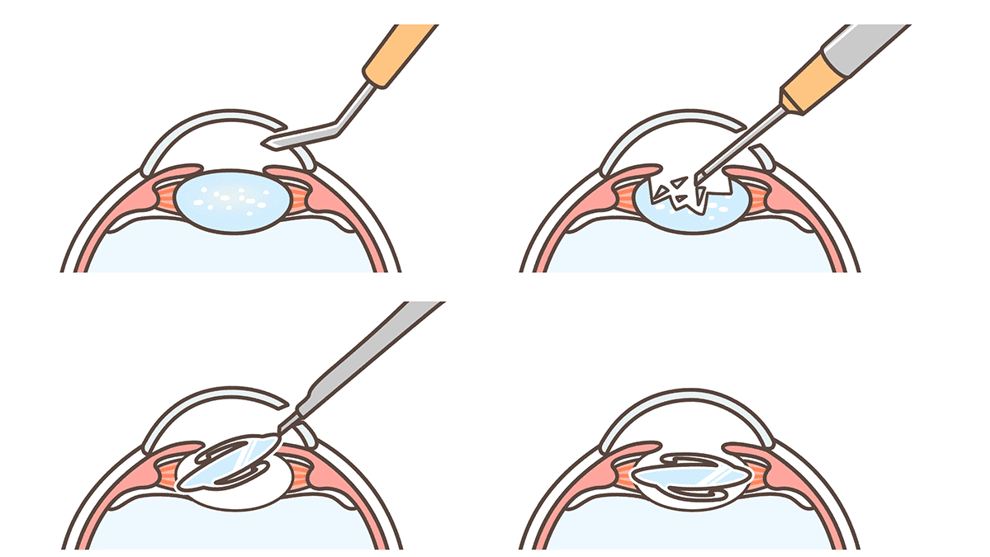Cataract
Cataract refers to the normal ageing process of the human lens. Located behind the pupil of the eye, earlier in life it is a clear structure, but with age becomes more opaque and also less able to accommodate (focus on near objects).
Symptoms include glare and halos around lights, difficulty with night driving (particularly oncoming headlights and streetlights) and reduced reading vision. The changes tend to be very gradual as a rule, and patients can also experience loss of high contrast vision and changes in colour perception.
With advancing cataract, there can also be difficulties judging distances, making everyday tasks such as pouring a cup of tea, more difficult. There is also an increased risk of trips and falls.
Cataract surgery is currently the most commonly performed operation in the UK. The surgery involves removing the cloudy lens and replacing it with an optically high quality artificial lens, which is normally placed in the same part of the eye as the lens that was removed.

The surgery is usually fairly quick, taking approximately 15 minutes on average, and is performed under local anaesthetic as a daycase procedure.
Your surgeon will be able to discuss the various options for the replacement lens power, based upon your vision requirements.
As with all surgery on the inside of the eye, there are risks involved.
The most serious risk is infection, which can permanently lead to reduced vision. This is rare, with a prevalence of less than 1:3000 cases and would require prompt treatment with antibiotics.
Other risks include prolonged inflammation, bleeding or retinal detachment. These are uncommon, and with prompt treatment, can still result in a good visual outcome.
Quite commonly a film develops behind the implant lens over time. Also known as Posterior Capsular Opacification this is a common condition and is easily treated with a quick laser procedure (known as YAG laser) as an outpatient.
Implant Lens options
Implant lens technology has dramatically advanced over recent years. Many patients benefit from a single focus (monofocal) implant, giving excellent distance vision without spectacles. With this, reading glasses are still needed, although sometimes it is possible, when both eyes are undergoing cataract surgery, to give one eye clearer near vision unaided (known as monovision). This is something your surgeon will be able to discuss with you.
For some patients, greater range of focus without glasses is important. Implant lenses with greater depth of focus are available and may be suitable for certain patients. Whilst single vision (monofocal) implant lenses tend to give the best optical quality in all light conditions, your surgeon will be able to discuss the other implant options available.






